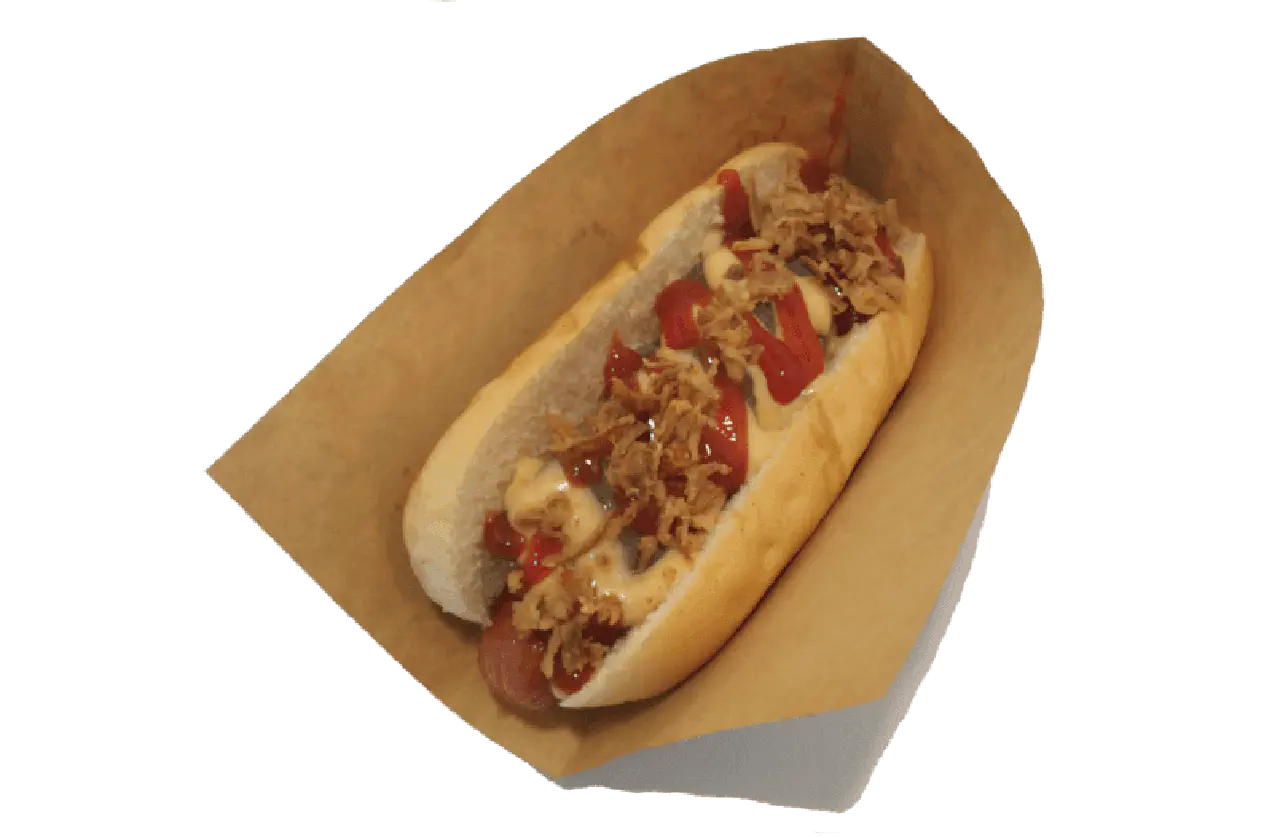New Yorker hotdogs are a beloved food in New York City and around the world. These delicious sandwiches are made with a type of sausage called a frankfurter, which originated in Frankfurt, Germany. Frankfurters are typically made from ground pork or beef and seasoned with spices such as pepper, nutmeg, and paprika.
New Yorker hotdogs are typically made with beef frankfurters and served on a soft, white bun. They are often topped with mustard, ketchup, onions, sauerkraut, and relish.
These hotdogs are popular at sporting events, festivals, and other celebrations, often sold by street vendors and concession stands.
Hotdog price includes sausage, bun, and 2 free choice sauces. Additional sauces are charged separately at ₱10 each. Check our sauces . Toppings are charged separately; see our toppings .
New Yorker Hotdog Background
The origins of the New Yorker hotdog are somewhat disputed but generally believed to have originated in New York City in the early 20th century. Some accounts credit German immigrants who started selling hot dogs from street carts.
Others attribute the creation to Nathan Handwerker, founder of Nathan’s Famous Hot Dogs in Coney Island, New York, in 1916.
Regardless of its exact origins, the New Yorker hotdog is a beloved food enjoyed by people of all ages worldwide. Try one next time you crave a tasty and satisfying sandwich!
“Noblest of all dogs is the hotdog; it feeds the hand that bites it.”
- Laurence J. Peter
New Yorker Hotdogs History
The New Yorker hotdog is a popular type of hot dog made with beef frankfurters served on soft, white buns. It likely originated in New York City in the early 20th century.
German immigrants popularized selling hot dogs from street carts, using beef frankfurters, a favored sausage in Germany.
Nathan Handwerker, founder of Nathan’s Hot Dogs in 1916, helped popularize the beef frankfurter as the main ingredient, making the hot dog a New York staple.
Today, the New Yorker hotdog remains popular worldwide, served with mustard, ketchup, onions, sauerkraut, and relish at sporting events, festivals, and street vendors.
